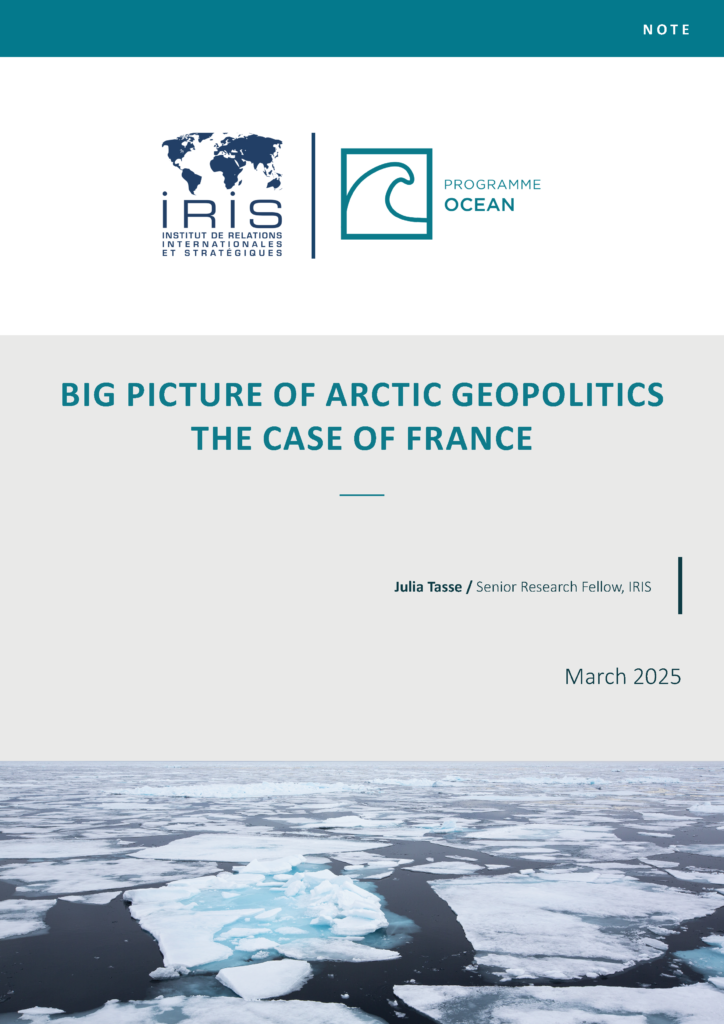Notes / Ocean
27 March 2025
Big Picture of Arctic Geopolitics. The Case of France

This note is an excerpt from the report Big Picture of Arctic Geopolitics published by The Fridtjof Nansens Institute (2024).
France’s position regarding the Arctic is significantly shaped by its historical perspective on polar regions, characterised by exploration, scientific inquiry, and discovery. This cultural association with the Far North influences its diplomatic stance, prioritising science diplomacy and environmental conservation over defence.
France’s official strategies, notably the National Roadmap for the Arctic published in 2016 and France’s 2030 Polar Strategy, Equilibrium in Extremes, issued in 2022, are worth studying in order to better understand the underlying contradictions between its environmental diplomacy and its military considerations. The 2016 Roadmap was shaped by Michel Rocard, Ambassador in charge of Polar Regions at the French Ministry of Europe and Foreign Affairs, whereas the 2022 Polar Strategy has been crafted by Olivier Poivre d’Arvor, Special Envoy of the President for Polar Regions and Maritime Affairs.
The evolution of the French stance is notable when comparing the two documents. The 2016 Roadmap, particularly in its third section, emphasises the significance of defence and security issues. These topics receive less prominence in the 2022 Polar Strategy. Encompassing both polar regions, this strategy highlights a shift in French diplomatic priorities in the Arctic.
This shift can be attributed to many factors, amongst which the perimeter of the Special Envoy, as mentioned, but also the evolution of France’s global diplomatic positioning. The concept of balance, mentioned several times in the 2022 Polar Strategy and in its title ‘Equilibrium in Extremes’, aligns with the Indo-Pacific strategy articulated by the French Ministry for Foreign Affairs in 2019, wherein France positions itself as a “balancing power.”
The concept of “balancing power”, as shaped by President Emmanuel Macron, conveys the idea of France being a reliable partner in a region, working towards international stability and cooperation.
The reference to the Indo-Pacific is clearly delineated in the 2022 Polar Strategy, which evokes small island states that are vulnerable to rising sea levels as a point of comparison to the Arctic, where climate change affects livelihoods and ecosystems.
If such an evolution can be deemed contradictory when compared to France’s military stance on the Arctic, which is based on the region’s strategic role, it can also be perceived as complementary. In its willingness to be a balancing power, is France advancing contradictory or complementary stances towards the Arctic?

